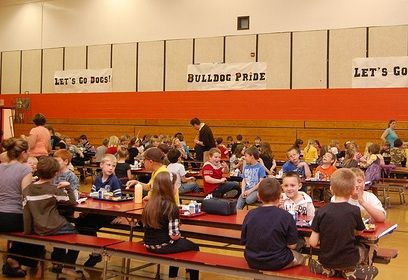Back-to-School Vaccination Checklist

As school is back in session, making sure your child receives all the appropriate vaccinations on time is essential. With outbreaks such as the whopping cough, a very contagious disease caused by bordetella pertussis, circulating nationwide, the Centers for Disease Control and Prevention (CDC) is placing a renewed emphasis on vaccinations for the 2012-2013 school year.
For your preschooler, and adolescents, parents are advised to have their children vaccinated from 14 diseases that can lead to severe symptoms or even be fatal. If a parent opts out of having their child vaccinated, they increase the risk of their children becoming ill, as well as infecting the rest of the community.
For your tween, it is important they receive vaccination for meningococcal meningitis. In addition, health experts also urge all parents with adolescent girls, as young as 11-years-old, to get vaccinated for the human papillomavirus (HPV). In 2006 U.S. Advisory Committee on Immunization Practices advised the vaccination of adolescent girls and young women to lower the amount of women who are diagnosed with HPV and cervical cancer.
It is also imperative to protect your child from measles. Measles is one of the most infectious and severe childhood illnesses. It is caused by a virus and spread by human contact, coughing and sneezing. The first sign of measles may be a fever, cough, runny nose, tiredness and inflamed eyes. As the disease develops, a red rash may appear on your child's face and can rapidly spread across the body.
Among the many specific vaccinations for your child, the flu vaccine should be administered yearly as well. Earlier this month the Food and Drug Administration approved the 2012-2013 formula, including three new virus strains likely to be the most common strains circulating this flu season.
In addition to minimize the amount of germs spread throughout schools and households, parents, teachers and school officials can follow a few tips:
In the Classroom
- Teachers and children should both wash their hands frequently
- Avoid eating and touching your nose, eyes and mouth before washing hands in order to minimize contracting the flu
- Always, Always, Always disinfect common surfaces such as a child's desk, cubby, etc
- Make sure your child have their personal tissue, hand wipes and hand sanitizer
At Home
- Teach your child to always cover his or her mouth when sneezing and/or coughing
- Reinforce to your child the importance of washing his or her hands
- And the more important one of all parents should never, ever allow their child to attend school once they are sick. Following this rule can help minimize other from contracting any infectious disease.
Visit the CDC for the 2012 recommended immunizations for children from birth to six-years-old and from seven to 18-years-old.



























